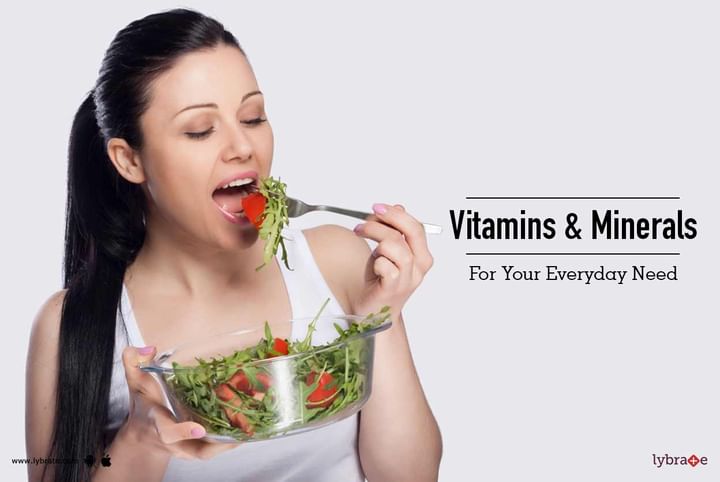Vitamins & Minerals For Your Everyday Need
Talk about nutrition and carbs, proteins and fats come to the mind immediately. However, these are the macronutrients and are not the only group of nutrients. More important are the micronutrients, comprising of a group of very important substances known as minerals and vitamins. Read on to know the most important vitamins and minerals that your body needs and the role they play.
- Vitamin A: Essential for healthy eyes, general growth and development, and glowing skin. These are found in carrots, sweet potatoes, and oranges.
- Vitamin B: These are essential for iron absorption, improved immunity, and production of energy. Whole grains and unprocessed foods and vegetables like lentils, potatoes, bananas, yeast, and molasses are good sources of these vitamins.
- Vitamin C: Required for iron absorption, blood clotting, elastic skin and antioxidant function. Found in good amounts in citrus fruits, guava, kiwi, grapefruits, strawberries, etc.
- Vitamin D: Extremely important for bone development, these are found in eggs, mushrooms and fish.
- Vitamin E: It improves blood circulation and reduces free radicals, which is essential for cancer protection. Almonds, nuts, tomatoes and sunflower seeds are good sources of vitamin E.
- Vitamin K: It is very essential for the process of blood coagulation, these are found in spinach, broccoli, kale, and other green vegetables.
- Iron: Very essential ingredients for blood formation and muscle building, clams, oysters, soybeans, lentils, and spinach are great sources of iron.
- Calcium: The most important ingredient, as it helps in the formation of teeth and bones, dairy products, tofu, and cheese are very good sources.
- Zinc: A key ingredient essential for overall growth, immunity and fertility, spinach, beans, oysters and dark chocolate carry a good amount of Zinc.
- Folic acid: Essential for iron absorption, cell regeneration, and in pregnancy for the healthy development of the baby. Green leafy vegetables, asparagus, peas, seeds, nuts, lentils, beets, corn, etc. are good sources.
Trace minerals like iodine, manganese, copper, fluoride, selenium, and chromium are also essential but in very small amounts. While these are not the only essential vitamins and minerals, these are the most important ones. The quantities of these substances required on a daily basis are very small, but critical for functions listed above. In addition, some of them also help in releasing free radicals, which provides protection against cancer and chronic inflammation. This helps prevent chronic health conditions like heart disease, diabetes, and stroke.
An important point to consider is while there are multiple Vitamins and supplements available in the market today to make sure you get all of these nutrients, try to eat a wholesome meal and get these through natural sources to the maximum extent possible. The natural foods are the best source, and supplements should be used only when these cannot be obtained naturally. Apart from this, you can try fast and up multivitamins tablets to energizes the body for daily activities.



+1.svg)
